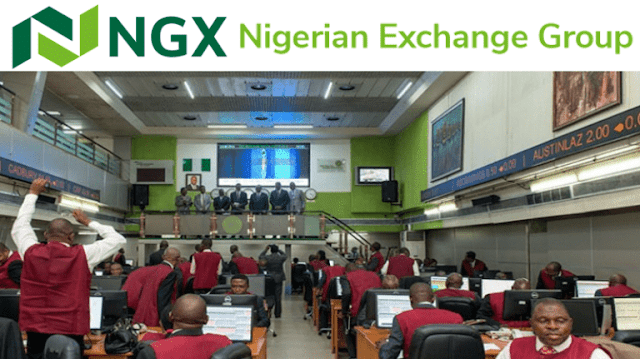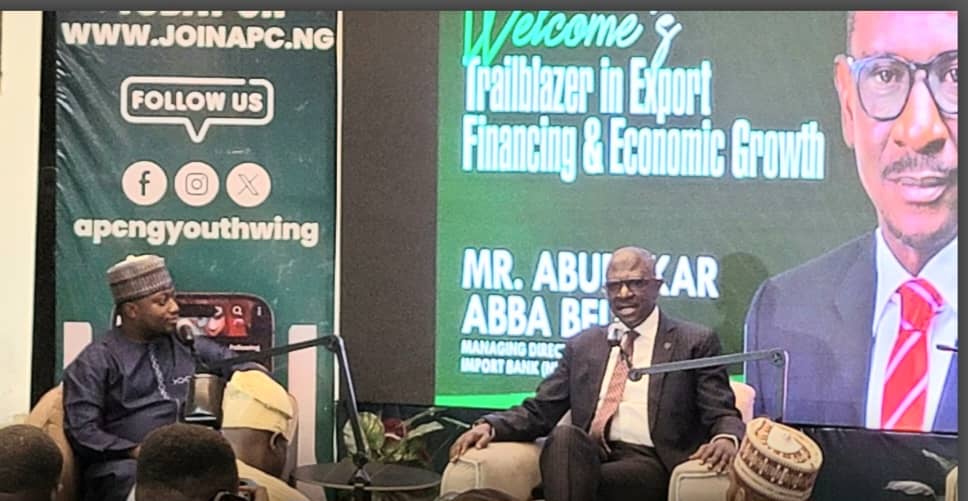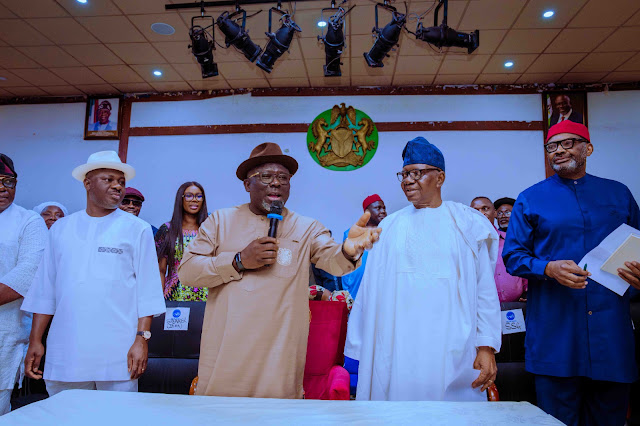The Nigerian Exchange Group (NGX), Nigeria’s premier capital market infrastructure provider, has reaffirmed its commitment to accelerating market growth through strategic global partnerships, product diversification, and increased listings. This ambitious agenda was highlighted during a high-level engagement in São Paulo, Brazil, on August 31, 2025, where NGX Chairman Dr. Umaru Kwairanga met with representatives of the Brazil Stock Exchange and Over-the-Counter Market (B3). The visit, part of a broader effort to strengthen Nigeria’s capital market, underscores the NGX’s vision to position Nigeria as a leading investment destination in Africa and a key player in the global financial ecosystem.
With a market capitalization nearing ₦100 trillion and over 400 listed securities, the NGX has established itself as a cornerstone of Nigeria’s financial system. However, in a competitive and interconnected global economy, the exchange recognizes the need for international collaboration to unlock new opportunities, enhance market efficiency, and drive sustainable growth. This article explores the NGX’s global partnership strategy, the economic context driving these efforts, the implications for Nigeria’s capital market, and the challenges that must be addressed to realize its full potential.
The Context: Nigeria’s Capital Market in a Globalized Economy
Nigeria’s capital market, managed by the NGX and its subsidiaries, plays a pivotal role in mobilizing capital for businesses, supporting infrastructure development, and fostering economic growth. Established over 60 years ago as the Lagos Stock Exchange, the NGX has evolved into a sophisticated platform that facilitates trading in equities, fixed income, derivatives, and alternative investment instruments. In recent years, the exchange has seen significant growth, with total market capitalization rising by 16% from ₦112.60 trillion in January 2025 to ₦126.73 trillion by June 2025, driven primarily by equities.
Despite this progress, the NGX acknowledges that its market capitalization remains modest compared to global peers like Brazil’s B3, which boasts a significantly larger market size. This disparity reflects Nigeria’s position as an emerging market with untapped potential. The NGX’s leadership, under Chairman Dr. Umaru Kwairanga and Group Managing Director/CEO Temi Popoola, is acutely aware of the need to bridge this gap through innovation, regulatory reform, and strategic partnerships.
The global financial landscape has become increasingly borderless, with capital flowing seamlessly across markets. In this context, partnerships with international exchanges like B3 offer opportunities to share knowledge, adopt best practices, and attract cross-border investment. For Nigeria, a country seeking to diversify its economy away from oil dependency, such collaborations are critical to unlocking the potential of small and medium-sized enterprises (SMEs), fostering financial inclusion, and positioning the capital market as a catalyst for inclusive growth.
The São Paulo Engagement: A Milestone for NGX
The NGX’s engagement with B3 in São Paulo, announced on September 1, 2025, marks a significant step in its global outreach strategy. Dr. Kwairanga, speaking during the visit, emphasized the importance of partnerships in today’s competitive markets. “We are here to share, learn, and collaborate, and we expect tremendous benefits on both sides from this visit,” he stated, highlighting the mutual benefits of knowledge exchange and market development.
The visit was part of a broader Nigerian delegation led by President Bola Ahmed Tinubu, which included ministers and business leaders. The delegation’s activities culminated in the signing of five Memoranda of Understanding (MoUs) between Nigeria and Brazil, including a significant agreement between Nigeria’s Bank of Agriculture and Brazil’s National Bank for Economic and Social Development (BNDES). This MoU aims to enhance collaboration in agricultural financing and joint projects, aligning with the NGX’s goal of channeling capital into SME-driven sectors like agriculture.
The engagement with B3 focused on several key areas, including product innovation, market expansion, and technology adoption. B3, one of Latin America’s largest exchanges, has achieved remarkable success in leveraging technology to enhance market efficiency and retail participation. For the NGX, learning from B3’s experience offers a blueprint for modernizing Nigeria’s capital market infrastructure and attracting a broader investor base.
Strategic Objectives of NGX’s Global Partnerships
The NGX’s pursuit of global partnerships is driven by several strategic objectives, each aimed at enhancing the competitiveness and inclusivity of Nigeria’s capital market.
Product Expansion and Diversification: The NGX is focused on expanding its product offerings beyond traditional equities and fixed income instruments. This includes developing derivatives, exchange-traded funds (ETFs), and green bonds to attract diverse investors. Partnerships with exchanges like B3 can provide insights into designing innovative financial products tailored to Nigeria’s economic needs. For instance, the NGX’s collaboration with DEG Impulse and the International Finance Corporation to promote ESG (Environmental, Social, and Governance) reporting and green bond issuance reflects its commitment to sustainable finance.
Increased Listings and Market Depth: With over 400 listed securities, the NGX is actively seeking to increase listings, particularly among SMEs and public sector entities. Dr. Kwairanga noted that the exchange is pursuing new listings in sectors like oil and gas, citing the government’s commitment to sell a stake in NNPC Limited and the anticipated listing of Dangote Petrochemicals. International partnerships can facilitate cross-listings and attract foreign companies to Nigeria’s market, enhancing liquidity and market depth.
Technology and Digital Innovation: The NGX has embraced digital transformation as a cornerstone of its growth strategy. Its flagship platform, NGX Invest, launched in 2024, has attracted nearly 60,000 investors by August 2024, simplifying access to primary market transactions. Collaborations with technology-driven exchanges like B3 can help the NGX enhance its digital infrastructure, streamline processes like dividend distribution, and improve investor accessibility through tools like the USSD code *5474#.
Financial Inclusion and Retail Participation: Nigeria’s capital market has historically been dominated by institutional investors, with fewer than 500,000 retail investors actively participating. The NGX aims to democratize access through initiatives like NGX Invest and financial literacy programs. Partnerships with global exchanges can provide insights into boosting retail participation, as seen in B3’s success in engaging individual investors.
Cross-Border Investment Flows: The NGX is positioning itself as a gateway for cross-border capital flows, particularly within the African Continental Free Trade Area (AfCFTA). Its investment in the Ethiopia Stock Exchange and participation in the African Exchanges Linkage Project demonstrate its commitment to regional integration. Collaborations with B3 can attract Brazilian investors to Nigeria, leveraging the country’s open and digitalized investment landscape.
Economic Context: Nigeria’s Capital Market in Focus
The NGX’s global partnership strategy is unfolding against a complex economic backdrop. Nigeria, Africa’s largest economy by nominal GDP, has faced significant challenges, including high inflation (over 30% in 2024), naira depreciation, and insecurity in key regions. These factors have constrained consumer spending, business investment, and foreign direct investment (FDI). However, recent macroeconomic reforms, such as the naira’s floatation in 2023 and the signing of the Investment and Securities Act (ISA) 2025, have restored some investor confidence.
The capital market has been a bright spot, with the NGX All Share Index climbing 0.48% to 141,004.14 points on August 25, 2025, driven by gains in sectors like electronic technology, consumer durables, and health technology. Total capital raised through the NGX in the first half of 2025 reached ₦4.63 trillion, supporting infrastructure, enterprise growth, and innovation. These achievements reflect the NGX’s role in mobilizing capital for Nigeria’s economic priorities.
However, challenges remain. The capital market’s growth is uneven, with sectors like construction and non-energy minerals lagging due to high borrowing costs and weak consumer purchasing power. Additionally, Nigeria’s reliance on oil exports continues to expose the economy to global price volatility, underscoring the need for diversification. The NGX’s partnerships with global exchanges aim to address these challenges by attracting investment to non-oil sectors and enhancing market resilience.
The Brazil-Nigeria Connection: A Strategic Partnership
The engagement with B3 is particularly significant given the economic parallels between Nigeria and Brazil. Both countries are leading emerging markets with large, diverse populations and significant SME-driven economies. Brazil, Latin America’s largest economy, has leveraged its capital market to support industrial growth and financial inclusion, offering valuable lessons for Nigeria. The MoU between Nigeria’s Bank of Agriculture and BNDES, signed during President Tinubu’s visit, highlights the potential for collaboration in agriculture, a sector critical to both economies.
Temi Popoola, NGX Group CEO, emphasized the role of capital markets in strengthening Nigeria-Brazil ties, particularly for SMEs. “With Brazil as Latin America’s largest economy and Nigeria as Africa’s largest, the potential for cooperation is immense,” he stated. The NGX’s Growth Board, designed to lower entry barriers for smaller companies, and its partnerships with institutions like the Bank of Industry (BOI) align with this vision, facilitating access to alternative financing options like crowdfunding and receivables financing.
The São Paulo engagement also builds on the NGX’s broader global outreach. In 2024, the NGX collaborated with the Securities and Exchange Commission (SEC) Nigeria to visit India’s National Stock Exchange (NSE), exploring strategies for retail participation, governance, and technology adoption. Earlier in 2025, the NGX sought collaboration with the Shanghai Stock Exchange (SSE), drawing parallels between Nigeria’s and China’s economic transformation. These engagements reflect a deliberate strategy to learn from global leaders and adapt their successes to Nigeria’s unique context.
Implications for Nigeria’s Capital Market
The NGX’s global partnerships have far-reaching implications for Nigeria’s capital market and economy:
Enhanced Market Competitiveness: By adopting best practices from exchanges like B3, the NGX can enhance its operational efficiency, attract foreign listings, and compete with global financial hubs. This could position Nigeria as a gateway for investment into Africa, particularly under the AfCFTA framework.
Increased Investor Confidence: Partnerships with reputable exchanges signal to investors that Nigeria’s capital market is open, transparent, and aligned with global standards. The NGX’s digital initiatives, such as NGX Invest, further enhance its appeal to international investors.
Support for SMEs: The NGX’s focus on SMEs through initiatives like the Growth Board and alternative financing mechanisms can drive inclusive growth. SMEs, which account for a significant portion of Nigeria’s GDP and employment, stand to benefit from increased access to capital.
Sustainable Development: Collaborations with exchanges like B3 can accelerate the NGX’s efforts in sustainable finance, such as green bonds and ESG reporting. These initiatives align with global trends and attract environmentally conscious investors.
Regional Integration: The NGX’s participation in the African Exchanges Linkage Project and its investment in the Ethiopia Stock Exchange position it as a leader in African capital market integration, enhancing Nigeria’s role in the AfCFTA.
Challenges and Risks
Despite the promise of global partnerships, the NGX faces several challenges in realizing its ambitions:
Macroeconomic Instability: Nigeria’s high inflation, currency volatility, and security challenges could deter foreign investors, even with robust partnerships. Addressing these issues requires coordinated efforts from the government and the CBN.
Regulatory Gaps: While the ISA 2025 strengthens Nigeria’s capital market framework, gaps in enforcement and transparency could undermine investor confidence. The NGX must work closely with the SEC to ensure robust regulation.
Limited Retail Participation: With fewer than 500,000 active retail investors, Nigeria’s capital market remains underpenetrated. Scaling initiatives like NGX Invest and financial literacy programs is critical to broadening participation.
Technological Barriers: While the NGX has made strides in digital transformation, challenges such as unreliable internet connectivity and low digital literacy in rural areas could limit the reach of platforms like NGX Invest.
Competition from Global Markets: Nigeria’s capital market competes with more established emerging markets like Brazil and India. The NGX must differentiate itself through innovation and investor-friendly policies to attract capital.
Policy Recommendations
To maximize the benefits of global partnerships and sustain market growth, the NGX and policymakers should consider the following:
Strengthen Regulatory Frameworks: The SEC and NGX should enhance transparency and investor protection to build trust. Regular audits and clear disclosure requirements can address concerns about financial reporting.
Invest in Digital Infrastructure: Expanding access to NGX Invest and other digital platforms requires investments in internet connectivity and digital literacy programs, particularly in underserved areas.
Promote SME Listings: The NGX should expand its Growth Board and partner with institutions like the BOI to provide technical assistance to SMEs seeking to list, reducing barriers to entry.
Foster Financial Literacy: Scaling initiatives like the Investor Education Series and X-Tour can empower retail investors, particularly youth and women, to participate in the capital market.
Leverage AfCFTA Opportunities: The NGX should deepen its role in the African Exchanges Linkage Project to facilitate cross-border listings and attract investment from African markets.
Looking Ahead: A Vision for Nigeria’s Capital Market
The NGX’s engagement with B3 and other global exchanges signals a bold vision for Nigeria’s capital market. By fostering partnerships, embracing digital innovation, and prioritizing SMEs, the NGX is positioning itself as a catalyst for economic transformation. The exchange’s success in raising ₦4.63 trillion in the first half of 2025 and achieving a 16% increase in market capitalization demonstrates its growing influence.
However, sustaining this momentum requires addressing macroeconomic challenges, enhancing regulatory oversight, and broadening retail participation. The NGX’s collaboration with B3, coupled with its investments in regional integration and sustainable finance, offers a roadmap for achieving these goals. As Nigeria navigates a complex global economy, the NGX’s strategic partnerships could unlock new opportunities, positioning the country as a leading destination for investment and innovation.
In conclusion, the NGX’s pursuit of global partnerships reflects a forward-looking approach to capital market development. By learning from global leaders like B3, the NGX can build a more resilient, inclusive, and competitive financial ecosystem. As Dr. Kwairanga aptly noted, “In today’s competitive, borderless markets, partnerships and knowledge sharing are essential to sustaining growth.” With continued commitment and strategic execution, the NGX is poised to drive Nigeria’s economic prosperity for decades to come.





